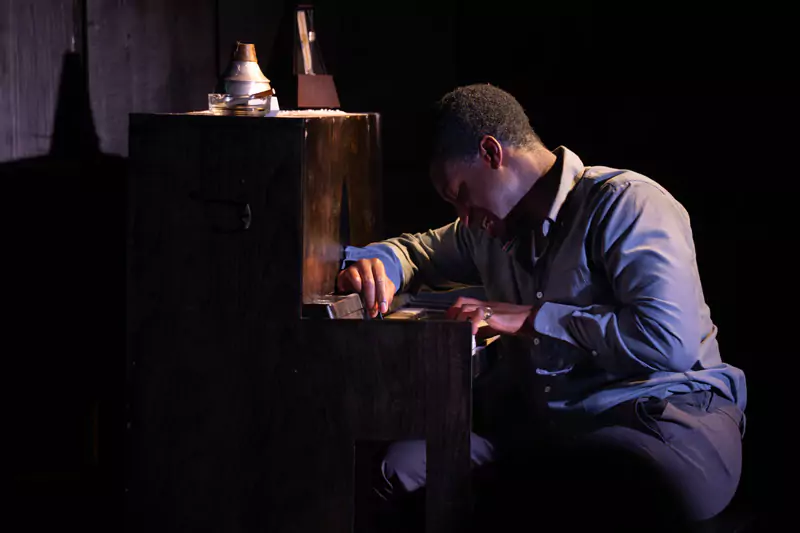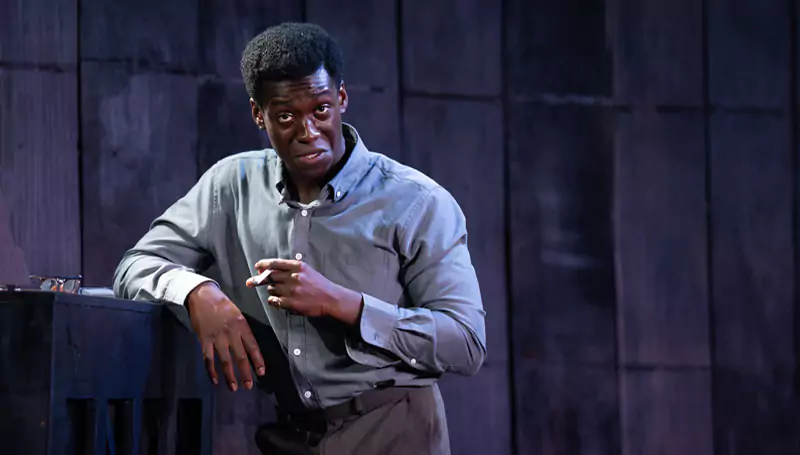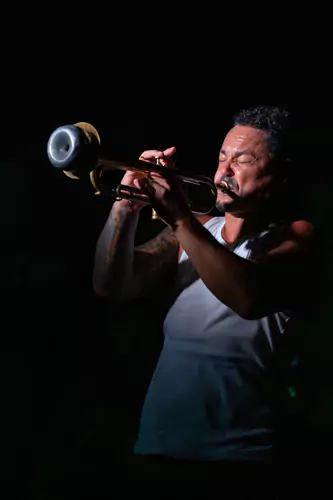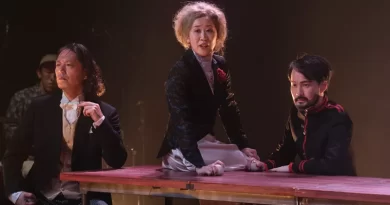“MILES.”, Edinburgh Fringe
Mark Brown in Edinburgh
15 August 2025
It is widely agreed that Miles Davis is to jazz what Ravi Shankar is to Indian classical music and J.S. Bach to the western classical tradition. That is to say that he was, and remains, the greatest creator of music in his field.

Benjamin Akintuyosi as Miles Davis.
Photo credit: Colin J Smith.
The genius behind such great albums as Kind of Blue, Sketches of Spain and the experimental Bitches Brew, Davis was also – as this short play written and directed by Oliver Kaderbhai attests – a deeply troubled and problematic man. Conceived and, in part, performed by the jazz trumpeter Jay Phelps, the biographical play MILES. (which is staged at the superb Summerhall venue until August 25) combines key aspects of Davis’s turbulent life with the making of Kind of Blue, which is, arguably, the greatest jazz album of all time.
The drama begins with Phelps (playing the character of the mixed-race, Canadian jazz trumpeter Jay) being accosted in a recording studio at Columbia Records by the ghost of Davis (who is played excellently by Benjamin Akintuyosi). Jay is recording to a deadline, but the spirit of Davis insists on challenging the young musician on his playing, his musical philosophy and much else besides.
Jay, in return, wants to know about the unconventional changes Davis made to the music in the course of recording Kind of Blue, and about the musical dream team that made the album. How and why, the musician asks Davis, did the great man form a band that included – among other outstanding jazzmen – the legendary saxophonist John Coltrane?
Jay Phelps as Jay.
Photo credit: Colin J Smith.
From these musicological conversations, Kaderbhai’s one-hour play opens into a rapid, often intense, consideration of Davis’s biography. The piece moves in short order from his early musical virtuosity, through his strained relations with Coltrane (who, famously, wrestled with his own personal demons), his catastrophic addiction to heroin and a period in which he paid for his narcotics by pimping out a series of women.
Akintuyosi (who, auspiciously, is making his professional debut here) does a superb job of playing Davis, both before and after the throat surgery that left him with his famous rasping voice. His apparition of the great band leader is a neatly balanced combination of personal swagger, artistic self-assuredness and hard-edged humour.
In some moments the versatile Phelps steps in to play other characters in Davis’s story. At other times the production exhibits a succinct theatrical shorthand. For instance, in the brief, but vivid, representation of Davis’s obnoxious period of pimping, a series of women’s dresses stands in for the women the musician exploited.
In many ways this is a conventional, linear bio-play, but it is illuminated by Phelps’s live trumpet-playing, by blasts of Davis’s recording of Kind of Blue (played, seemingly, on an old reel-to-reel tape machine), and by a series of photographic images (some displayed on Akintuyosi’s body via the surprisingly effective device of an old overhead projector).
All of which adds up to an absorbing, pleasingly hand-spun piece of Fringe theatre. Neatly conceived and well acted, its only real weakness is its brevity.
Thumbnail and image above also courtesy of Colin J Smith.










